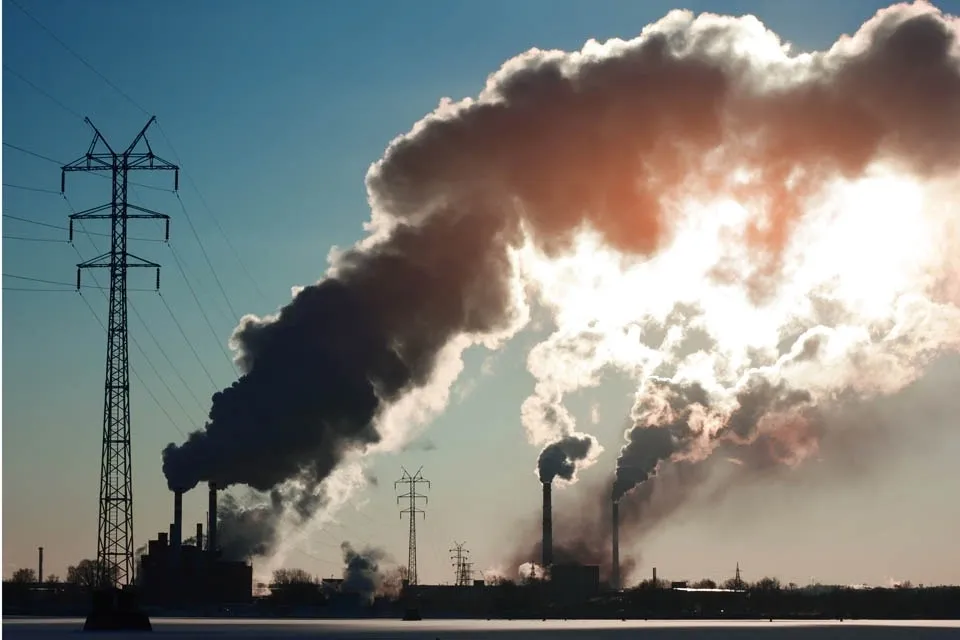
If you wish to vote for action on climate change, you need to know what parties offer good climate action policies. There are many minor parties, and it is difficult to spend the time to find out what they propose to do if elected.
By Richard Weller* of Climate Future
The bushfires of our Black Summer and the recent flooding around Lismore, southern Queensland and other areas, represent a new threat that could strike anywhere. Action is clearly required on climate change to reduce the worsening of these impacts into the future.
Useful how to vote cards
Good guidance is given on how-to-vote cards covering every electorate in Australia, that are available on https://voteclimateone.org.au/ (easily downloaded). The cards also cover the Senate paper for each state. Each group or representative is marked with a Green, Orange or Red “score”. This is very useful as a starting point for the lower house paper – remember EVERY box must be numbered for the lower house.
Senate voting paper
For the Senate voting paper, the groupings on the paper are marked with the same green, orange and redcolours. There is no order given for the Green listed groupings. The order is up to the voter to choose. Check on the Senate voting paper how many boxes you need to number, it is different if you vote above the line than below the line. Remember you can number more boxes on the Senate paper if you wish.
To assist in your selection of minor groups in the Senate, if you want to vote for these rather than the main parties, the following short summaries have been assembled for each of the groups marked with a Green colour (one orange group is included).
Links to their policy sites are also provided for further information if you want to dig deeper. All the Red groupings either have no policy, a very questionable attitude or call the climate crisis a “fraud”. These groups will make the climate crisis worse, and it certainly can get a lot worse if we carry on as we are.
The following short policy summaries are in Senate Paper Letter order, but in reverse order with A at the bottom and R at the top, to match the Vote Climate One how-to-vote cards.
Short Policy Summaries
(please check on the party web site linked to ensure you are satisfied with your choice)
R
Fusion Party
Declare and mobilise against climate emergency; 10 year transition to negative emissions; Price on carbon; Lead internationally to restore a safe climate; 800% renewables; The world has left it too long for a gradual path to net zero to restore a safe climate, for tweaked business as usual to get us where we need to be. The nature of the emergency needs to be recognised, and actions to mobilise against it need to be prioritised – to take a war-footing against a threat to our survival.
https://www.fusionparty.org.au/
[A merger of Science Party, Pirate Party, Secular Party, Vote Planet, and Climate Change Justice Party with a range of social justice and freedom policies]L
Indigenous-Aboriginal Party
The web site has no specific climate policy. Discussions with party representatives indicate a strong intent to act on climate through the caring for country principles and control of damaging mining practices.
https://www.indigenouspartyofaustralia.com/
[A new party they have a range of policies around indigenous issues only.]K
Aust. Democrats
Declare a climate emergency; Commit to reducing emissions by at least 66% by 2030 and develop pathways for this and for net-zero emissions by 2050; price on carbon; stop subsidies to fossil fuels; Just Transition Authority; more detail on the website:
https://www.democrats.org.au/2022-election-platforms-2/
[Comprehensive range of detailed progressive type policies]J
Federal ICAC Now
No climate policy on their web site
https://www.federalicacnow.org/
[Besides the ICAC policy they call for other transparency measures around donations and jobs for retired politicians. It is understood that climate action would be assisted by a reduction in corrupt activity in Federal politics]I
Socialist Alliance
Capitalism has proven manifestly incapable of resolving the impending climate catastrophe; 100% renewable energy within 5-10 years; power industries under public ownership; no new coal or gas projects, including Adani; ban fracking and unconventional gas mining; remove fossil fuel subsidies; begin reforestation and protect existing; no nuclear
https://socialist-alliance.org/policy#climate
[Broad range of policies around a revolutionary approach involving the whole community to create a democratic socialist society]H
Reason Party
Declare a climate emergency; divest from ff; base action on IPCC reports; zero carbon by 2030; climate justice; fund infrastructure for renewables; re-industrialise for new industries; trial zero emission trucks;
https://www.reason.org.au/climate_emergency
[A wide range of social equity and integrity policies; NDIS; affordable housing; donation reform; media diversity, refugees, domestic violence, etc]E
Greens
Detailed policy with targets consistent with 1.5C; phase out fossil fuels by 2030; help workers; provide a transition authority; immediate ban on new fossil fuel infrastructure; prepare for impacts; get fossil fuel influence and money out of politics; restore land, forests, biosphere; provide for carbon drawdown; etc
https://greens.org.au/platform/climate
[The wide range of Greens policies are listed on their web site]D
Sustainable Aust.
Climate policy appears under environment; aim to stay below 1.5C; Net zero by 2050 with preferred by 2035; phase out subsidies; no new coal or fracking; job guarantee, limit population growth, stop corruption;
https://www.sustainableaustralia.org.au/policies
[Range of policies around sustainability on energy, environment, planning, population, etc.]B
TNL
We are in a climate emergency, and the World must reach net zero emissions by 2030. To delay any further will risk the very existence of our planet; net zero emissions by 2030; Climate action war cabinet; stop all new fossil fuel projects; cease subsidies; ; re-training for workers; protection of mangroves, wetlands, forests; regeneration of environment;
[Re-named from “The New Liberals” Very wide range of policies; integrity (ICAC); affordable housing; transport; water; taxing of big companies; Uluru statement of the heart, etc.]A
Animal Justice Party
Prohibit any fossil fuel expansion and rapidly transform to a carbon-free energy infrastructure (no target provided); rapidly transform Australian agriculture to allow reforestation by reducing grazing; price on carbon (tax); carbon tax income into clean energy solutions; sustainable plant-based food agriculture systems and education; Protect existing forests and marine habitats;
https://www.animaljusticeparty.org/our_policies
[Policies mostly limited to the protection of animals and the environment generally]What you can do
1. Check out https://voteclimateone.org.au/
2. Do your own research using the links provided in this article to learn more about new and minor parties
3. This is our chance to make a difference for the future so think about how you vote and do so in a way that will support future generations and nature
* Richard Weller is a retired structural engineer from the Central Coast. His expertise in extreme events (temperature, wind, flood, etc) their definition from measured data and impacts on the built environment provides a firm scientific background for his understanding of the climate crisis. He is concerned at the lack of action on emissions reduction and preparation for change due to the warming climate.
NOTES:
1. All voters must make their own decision on who to vote for. Further investigation is recommended by using the links to the party web sites. This information has been prepared solely as a non-partisan summary of the policies proposed by the selected groups.
2. The gradings are based on the ability of each policy to achieve the Paris agreement limit of 1.5 ̊C above pre-industrial (as set out in UN and many other scientific reports). There is a very significant difference between a policy that would deliver the 1.5 ̊C limit and one consistent with a higher limit such as 2 ̊C and 3 ̊C. For example, this limit would provide for the saving of a small proportion of our coral reefs while 99% of all coral reefs are currently expected to be destroyed under the 2 ̊C scenario. A suitable policy would require immediate and rapid economy wide action due to the lack of effective change over the last 30 years.


